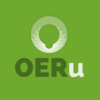Information pack for new OERTen members
Contents
About the OER Tertiary Education Network (OERTen)
The OER Tertiary Education Network (OERTen) is an international innovation partnership of accredited universities, colleges and polytechnics collaborating on the implementation of the OER university concept.
The OERTen is coordinated by the OER Foundation, an independent educational charity that provides leadership, international networking and support for educators and educational institutions to achieve their objectives using open education approaches. The OERu and the WikiEducator network of educators are flagship international initiatives of the OER Foundation.
OERTen members are silver or gold contributing partners of the OER Foundation and participate in the decision-making for the implementation of the OERu initiative.
Purpose of this information pack
The purpose of this information pack is to:
|
Getting started
Content coming soon, should cover:
- Creating accounts on the different platforms
- Marketing -- press releases about membership and how the OER Foundation profiles organisational membership internationally
- International communication -- i.e. appraising management and staff about the project
Communication and collaboration technologies
The OER Foundation subscribes to a philosophy of “open philanthropy” which encourages transparency and international community collaboration. We use the following technologies to support communication and collaboration:
- Public OER university discussion list
- WikiEducator for collaborative planning and development of project documentation
- Personal social media.
Details of collaboration technologies
| Technology | Purpose | Details |
| OERu discussion group | The main community communication vehicle of the OERu for all major discussions.
(Suggestions and discussions relating to the editing of specific planning documents should be posted on the relevant talk pages in the wiki. See below.) |
This discussion list was established by participants of the inaugural meeting of the OER for assessment and credit for students project which established the foundations for the OERu concept. The list is hosted on Google Groups and membership continues to grow. As an open list anyone can apply to join.
|
| WikiEducator | Project planning, collaborative development of OERu documentation and design, development and hosting of OERu learning materials. |
We use the WikiEducator platform for:
|
| Personal blogs | Publishing of individual perspectives and reflections about the OERu | We encourage individuals to blog about OERu developments. The OER Foundation harvests and publishes a blog feed of OERu related posts using #oeru on the portal page in WikiEducator.
|
| Microblogging | A stream of digital consciousness and ideas about the OERu. Micro bloggers should use the #oeru tag. | The OER Foundation recommends that the community use the identi.ca free microblog service for posting about #oeru because notes on this site are published under a default Creative Commons Attribution license. This facilitates legal reuse aligned with the OER philosophy.
|
Important web links and resources
| OERu homepage | Portal node of the OERu on WikiEducator. This is the open planning hub for the OERu concept. Planning documents are drafted and discussed in the wiki pending final decisions of the Management Committee of OERTen. |
| 5 Things you should know about the OERu network plan |
A short 2 page document which summarises the essence of the OERu network. Used for recruitment of anchor partners, internal communications and informing the international higher education community about the network. |
| OERu: Towards a logic model and plan for action |
Detailed report documenting the context, problem and logic model for implementing the OERu. |
| International media and selected presentations | Archive of international media coverage and selected keynote presentations discussing the OERu. |
| Inaugural planning meeting for the OER for assessment and credit for students project | International planning meeting which was streamed internationally attracting +200 registered participants from 46 countries. Video recordings of the meeting highlights are available. |
